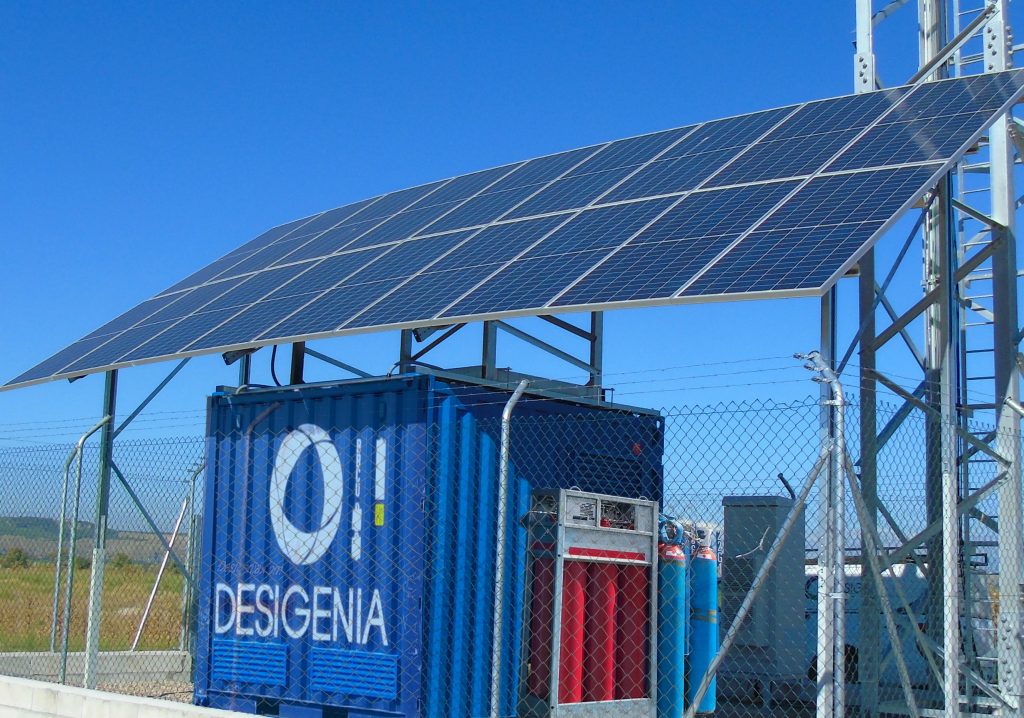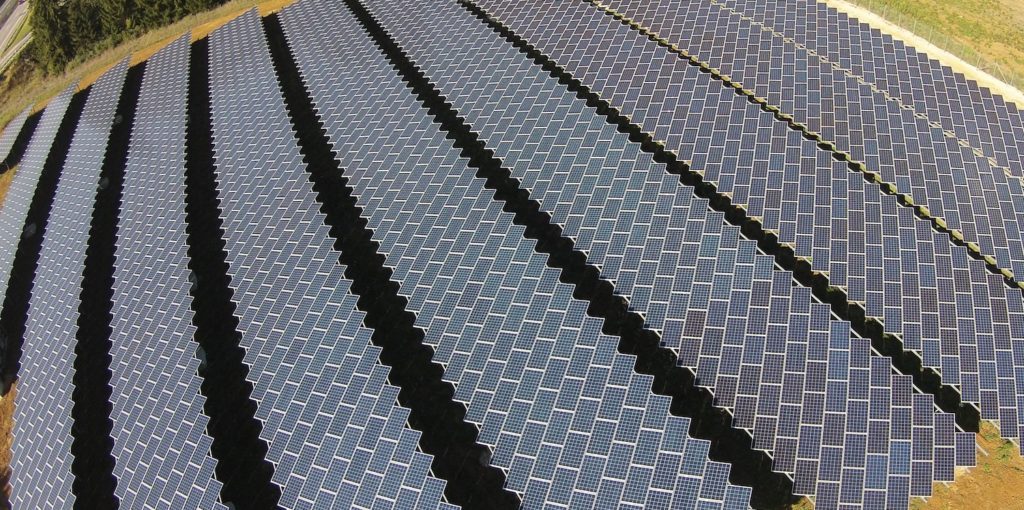From pv magazine Spain
Desigenia, a Spanish energy efficiency specialist, has developed Ecocube, a hybrid power system for telecoms sites that is based on solar panels, high-cycle batteries, and hydrogen fuel cells.
“Its novelty compared to the rest of the hybrid systems that Desigenia installs in telecommunications sites is the storage of energy based on hydrogen,” the company said. “Normally, the space limitations of isolated telecommunications centers condition the installation of photovoltaic systems, and prevent having a totally renewable solution based on solar panels and batteries, which makes it necessary to install a diesel generator set.”
The system uses photovoltaic energy for direct consumption and uses surplus power to produce hydrogen via an electrolyzer. The generated hydrogen is then compressed, stored in bottles and used for electricity production via the fuel cell.
“The system is designed to provide between 1-10 kW of energy,” a spokesperson from the company told pv magazine. “It is scalable and can be adjusted according to the required power and demand, with the expansion of solar panels or an increase in the number of batteries. In other cases, the hydrogen bottles could be resized and increased.”
In principle, the system is designed for isolated telecoms stations, but if more power is required, the project would have to be studied. It would be possible to design a custom-made system.
“By replacing the diesel generator with a fuel cell as a source of energy, we avoid more than 3,600 liters of fuel consumption per year,” said the company.
The new EcoCube with hydrogen is designed for telecoms locations without an electrical network and a lack of space to install the necessary solar modules. The system can be installed on sites with space restrictions with a footprint of 10 meters ×1 0 meters, including the tower.
“There we have our headquarters and we can better coordinate the supervision and operation of the system, but we hope that by next year we will be able to implement it in other markets where we have already implemented our traditional EcoCubes in Mexico, Chile or Colombia, for example,” the spokesperson said. “We are open to new markets if demand arises.”
The company developed the system under the umbrella of the Together Project (Trigeneration with Geothermal, Hydrogen and Renewable Energies), which was funded by Spain's Ministry of Science, and Innovation.
This content is protected by copyright and may not be reused. If you want to cooperate with us and would like to reuse some of our content, please contact: editors@pv-magazine.com.




Surely a quantity of water is required to be stored in a tank instead of diesel at the “remote” site? This will need to be replenished. How does that compare to the 3600 ltrs of diesel per year?